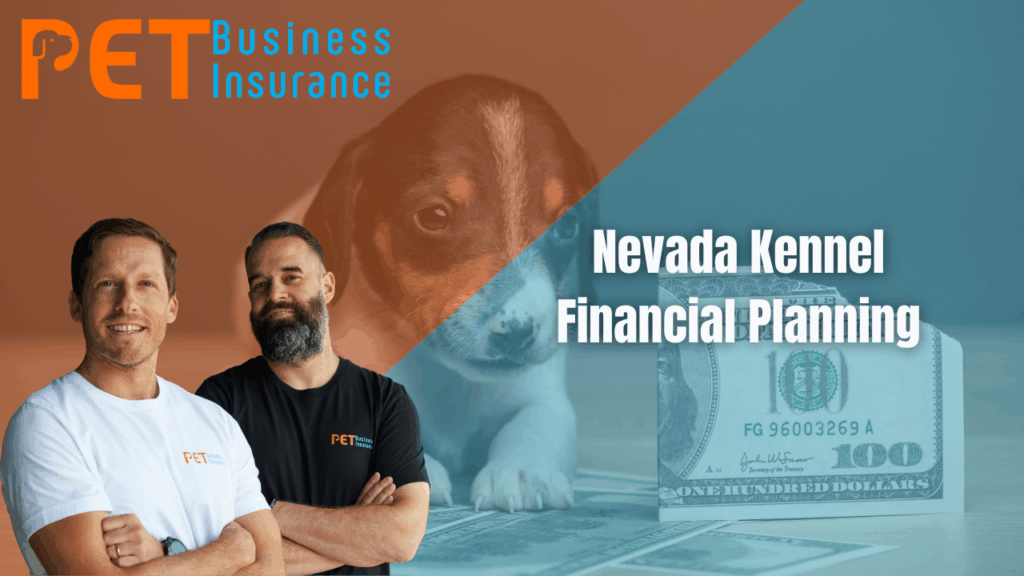
If you’re starting or running a kennel in Nevada, are you wondering how to make your business financially secure and sustainable?
Do you know which hidden costs, compliance issues, or insurance gaps could hurt your profitability or even shut you down?
In this comprehensive guide, you’ll learn exactly how to navigate Nevada’s unique regulatory, climatic, and market conditions to create a thriving kennel business.
We’ll break down what you need to know about:
- Local laws and permits in counties like Washoe, Clark, and Douglas
- How Nevada’s climate impacts costs and operations
- Budgeting startup and daily expenses
- Maximizing revenue through smart service design
- Essential insurance coverage every kennel owner must have
Whether you’re in Reno or Las Vegas, this article will help you build a profitable, protected business from the ground up.
Nevada’s Unique Landscape for Kennel Businesses
Nevada kennel businesses operate in a highly localized and regulated environment. Understanding both the letter of the law and the unspoken standards is crucial.
State and Local Regulatory Requirements
At the state level, NRS 574.280 defines what qualifies as a kennel, but local laws go further. Washoe County, for example, requires a Commercial Animal Welfare Permit, while Douglas County mandates zoning minimums and specific license types. Clark County breaks down permits by pet type and activity, even requiring documentation of show participation for breeder permits.
Failing to comply with these layered rules can lead to fines, shutdowns, and legal issues. Always confirm with your local animal control office and legal advisors.
Climate Considerations in the Silver State
Nevada’s desert climate brings unique challenges:
- Extreme heat demands shaded areas, indoor cooling systems, and heat-avoidant scheduling.
- Winter prep is necessary in northern areas.
- Disaster planning for wildfires and flash floods is essential.
Your facility design and daily routines must reflect the realities of Nevada’s climate, or you risk animal welfare issues and increased operating costs.
A Growing Market, But With Competition
Nevada’s pet care industry is growing due to population increases and rising pet ownership. That means opportunity—but also competition.
You can stand out by offering:
- Daycare services for working professionals
- Training classes
- Grooming add-ons
- Premium boarding options for senior or special-needs pets
Focus on value and differentiation, not just price.
Understanding and Managing Kennel Business Costs
Success starts with smart cost planning. Let’s break down what you’ll spend and how to manage it.
Startup Costs
Expect to budget for:
- Property purchase or lease and renovation
- Licensing and permits (which vary by county)
- Kennel equipment, IT systems, and cleaning tools
- Initial insurance premiums
- Branding, website, and opening promotion
Operating Costs
Ongoing expenses include:
- Staff wages and benefits (your biggest cost)
- Utilities, especially summer electricity
- Supplies (food, cleaning, grooming)
- Marketing
- Facility upkeep
- Emergency reserves for animal care or repairs
- Insurance renewals
Tip: Always have 3-6 months of expenses in reserve.
Budgeting and Forecasting
Create a flexible budget with these elements:
- Detailed cost breakdowns
- Income projections based on service mix
- Contingency funds
- Monthly performance reviews
Maximizing Kennel Profitability
You control more than just your costs. You can increase revenue, too.
Diversify Your Services
Add revenue streams like:
- Boarding (daily, long-term)
- Grooming (basic to specialty)
- Obedience and agility training
- Daycare
- Pet retail products
- Niche offerings like pet taxis or photo shoots
Price Strategically
Use:
- Market research to stay competitive
- Value-based pricing to emphasize quality
- Bundled packages to encourage upsells
- Loyalty programs to boost retention
Boost Efficiency
Implement:
- Smart staff scheduling and cross-training
- Supply inventory tracking
- Energy-efficient upgrades
- Software for bookings, records, and payments
The Indispensable Role of Insurance in Financial Planning
Insurance is not optional for Nevada kennels. It’s a financial shield.
Why You Need It
Without insurance, one accident could end your business. Coverage protects you from:
- Lawsuits from pet injuries or escapes
- Property damage
- Vet bills from accidents in your care
- Lost income from shutdowns
Must-Have Coverages
At a minimum, consider:
- General Liability: Injury or property damage on-site
- Professional Liability (E&O): Claims from care errors
- Commercial Property: Building and equipment protection
- Animal Bailee: Coverage for pets in your care
- Workers’ Compensation: Required if you have staff
- Commercial Auto: For any business-related transport
- Business Owner’s Policy (BOP): A cost-effective coverage bundle
What Affects Your Premiums
Factors include:
- Facility location and wildfire risk
- Number of pets and staff
- Services offered
- Claims history
- Deductibles and coverage limits
A good insurer will customize your policy to fit your risks and budget.
Take the Next Step with PetBusinessInsurance.com
Don’t leave your kennel vulnerable. PetBusinessInsurance.com specializes in the exact policies Nevada kennel owners need. We can help you:
- Understand your legal requirements
- Fill coverage gaps
- Bundle policies to save money
- Gain peace of mind
Schedule a free consultation today.
Let us protect your livelihood, so you can protect Nevada’s pets.
Conclusion: Build with Confidence
You’ve learned how to navigate regulations, manage costs, serve a growing market, and shield your business with smart insurance.
At the end of the day, your passion for animals deserves the right financial foundation. PetBusinessInsurance.com is here to help you build a business that’s safe, profitable, and sustainable for the long haul.
Protect your passion. Protect your business. Partner with the experts at PetBusinessInsurance.com.

